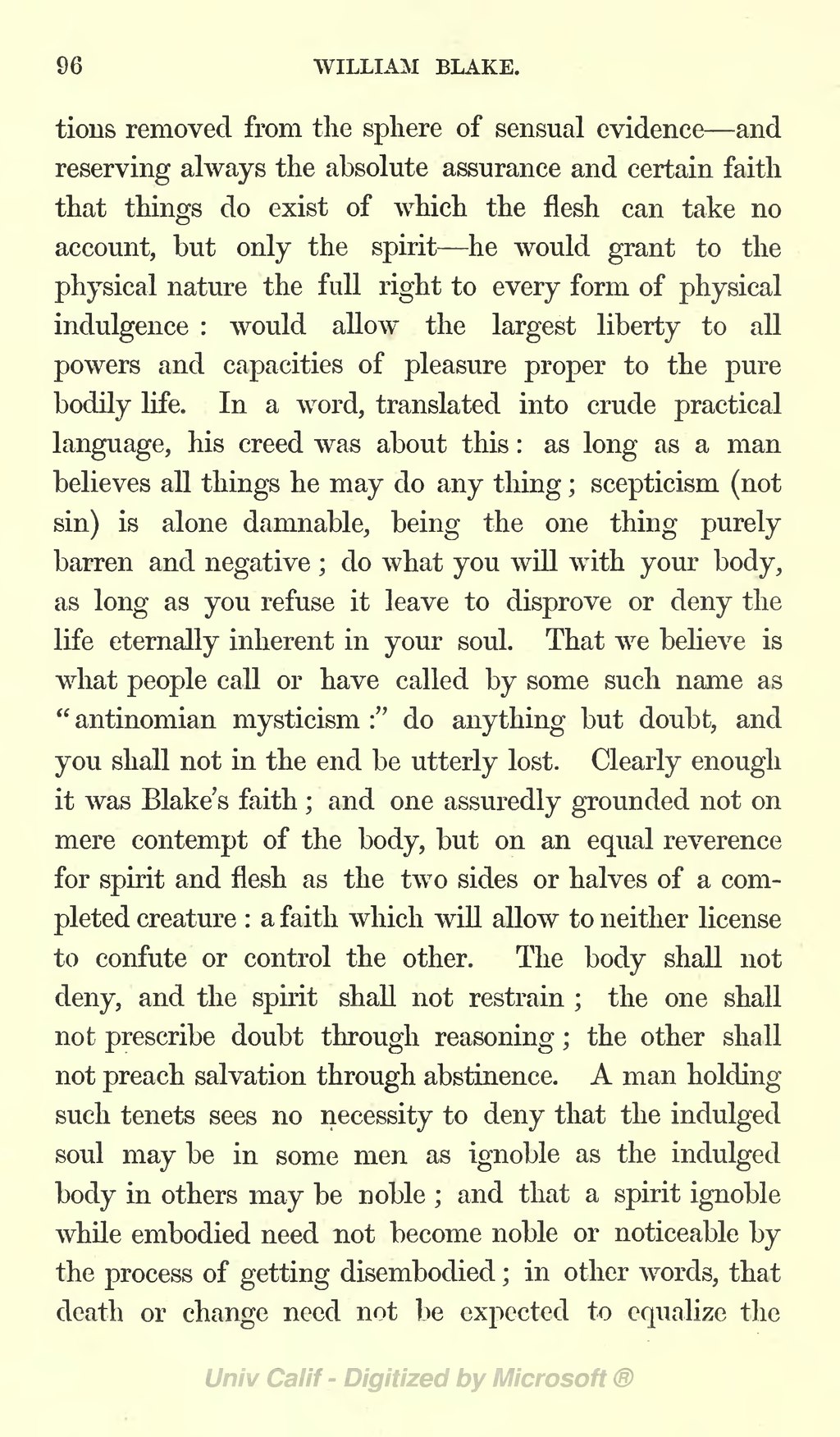tions removed from the sphere of sensual evidence—and reserving always the absolute assurance and certain faith that things do exist of which the flesh can take no account, but only the spirit—he would grant to the physical nature the full right to every form of physical indulgence: would allow the largest liberty to all powers and capacities of pleasure proper to the pure bodily life. In a word, translated into crude practical language, his creed was about this: as long as a man believes all things he may do any thing; scepticism (not sin) is alone damnable, being the one thing purely barren and negative; do what you will with your body, as long as you refuse it leave to disprove or deny the life eternally inherent in your soul. That we believe is what people call or have called by some such name as "antinomian mysticism:" do anything but doubt, and you shall not in the end be utterly lost. Clearly enough it was Blake's faith; and one assuredly grounded not on mere contempt of the body, but on an equal reverence for spirit and flesh as the two sides or halves of a completed creature: a faith which will allow to neither license to confute or control the other. The body shall not deny, and the spirit shall not restrain; the one shall not prescribe doubt through reasoning; the other shall not preach salvation through abstinence. A man holding such tenets sees no necessity to deny that the indulged soul may be in some men as ignoble as the indulged body in others may be noble; and that a spirit ignoble while embodied need not become noble or noticeable by the process of getting disembodied; in other words, that death or change need not be expected to equalize the
Page:William Blake, a critical essay (Swinburne).djvu/112
This page has been validated.
96
WILLIAM BLAKE.
